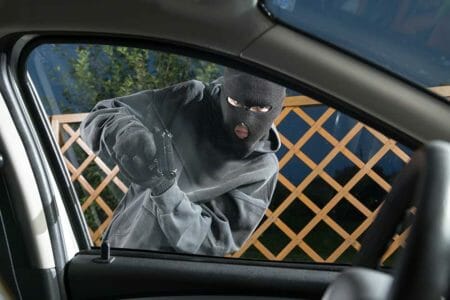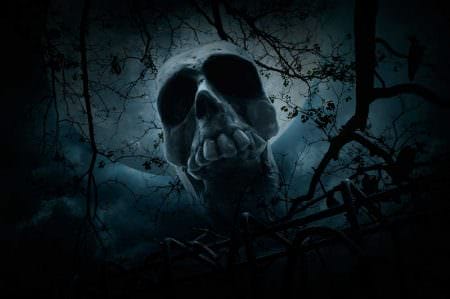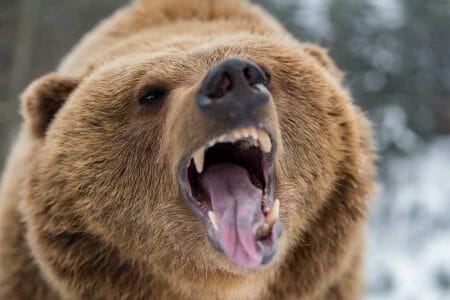
Much has been made of an 1824 University of Virginia ban on the keeping of weapons on campus by students. The resolution was passed on October 4, 1824, about five months before classes were started at the University. Thomas Jefferson and James Madison, both former presidents and elder statesmen, were members of the board and attended when the resolutions were passed. Both were to die on July 4th, 1826, one year and nine months later.
The portions of the resolutions concerning weapons are contained in this excerpt, with the weapons passages in bold:
No Student shall admit any disturbing noises in his room, or make them any where within the precincts the University, or fire a gun or pistol within the same, on pain of such minor sentence as the faculty shall decree or approve. but the proper use of musical instruments, shall be freely allowed in their rooms, and in that appropriated for instruction of music.
Riotous, disorderly, intemperate or indecent conduct of any student within the precincts shall be punished by interdiction of a residence within the precincts; and repetitions of such offences, by expulsion from the University.
Fighting with weapons which may inflict death, or a challenge to such fight, given or accepted, shall be punished by instant expulsion from the University, not remissible by the Faculty; and it shall be the duty of the Proctor to give information thereof to the civil magistrate, that the parties may be dealt with according to law.Offences cognisable by the laws of the land shall be left to the cognisance of the civil magistrate, if claimed by him, or otherwise to the judgment of the Faculty: all others to that of the Faculty. and such of these as are not specially designated in the enactments of the Visitors may be subjected by the Faculty to any of the minor punishments permitted by these enactments.
Sentences of expulsion from the University (except in the case of challenge or combat with arms) shall not be final until approved by the board of Visitors or, when they are not in session, by a majority of them, separately consulted. but residence within the precincts, and attendance on the schools may be suspended in the mean time.
No Student shall, within the precincts of the University, introduce, keep or use any spirituous or vinous liquors, keep or use weapons or arms of any kind, or gunpowder, keep a servant, horse or dog, appear in school with a stick, or any weapon, nor, while in school, be covered without permission of the Professor, nor use tobacco by smoking or chewing, on pain of any of the minor punishments at the discretion of the Faculty, or of the board of Censors, approved by the Faculty.
Several things about the ban on all weapons at the University of Virginia are clear. The ban only applied to students. It did not apply to staff or to the public. The ban only applied on campus. The ban did not have any criminal penalties. It was a rule of the University, with penalties only enforceable because the students had voluntarily entered into a voluntary association, that of students at the University.
People who attempt to justify modern bans on firearms at schools or universities often cite the University of Virginia rule as a historical precedent. It is a poor precedent because:
- The University of Virginia ban was not a law.
- It was a rule which only applied to students.
- The University of Virginia ban only applied “within the precincts of the University“.
Voluntary associations can make their own rules. If a person does not like the rules, they can leave the association. Students can read the rules before they enter a university. Laws are to apply to everyone.
In the Constitutional challenge to the federal Gun Free School Zone Act in Montana, the Assistant United States Attorney, Thomas K. Godfrey claims the University of Virginia ban on weapons possession by students is a precedent. From the brief:
1824. The University of Virginia Board of Visitors—whose six members included Thomas Jefferson and James Madison—resolved that: “No Student shall, within the precincts of the University, … keep or use weapons or arms of any kind, or gunpowder[.]” UNIVERSITY OF VIRGINIA BOARD OF VISITORS MINUTES, at 6-7 (Oct. 1824).
Bans on students possessing weapons within the precincts of the University are not a precedent for bans on everyone possessing firearms outside of a school.
About Dean Weingarten:
Dean Weingarten has been a peace officer, a military officer, was on the University of Wisconsin Pistol Team for four years, and was first certified to teach firearms safety in 1973. He taught the Arizona concealed carry course for fifteen years until the goal of Constitutional Carry was attained. He has degrees in meteorology and mining engineering, and retired from the Department of Defense after a 30 year career in Army Research, Development, Testing, and Evaluation.







As I understand Bruen, it hinges on what was LAW at the time of the founding of the nation. A college rule is not law, and when the second amendment was passed and ratified, it might have made the rule invalid, anyway, had it been challenged on constitutional grounds.
I would like to see all the enrolled students go to another school and due to these policies and watch how fast they change these rules when it cost them all the students tuition . No students no money for the clowns making these rules .
It was Adams who died on the same 4th of July as Jefferson, Dean, not Madison.
You and Stillwolfe are both correct. Thank you for the historical correction.
with the number of shootings occurring on school grounds, is there anyplace more dangerous?
Might I suggest what is referred to as “North St. Louis”? Some parts of South City too. Certain sections of Chicago, Baltimore, Philadelphia, Camden, etc. would also qualify. Though schools have been the occasional target for mass murder since 1927, statistically they are a very safe place to be.
was to stop dueling
Mr. Weingarten: One slight correction. James Madison didn’t die on the same day as Jefferson. Mr. Madison died June 28th, 1836. I suspect, Dean, that you were thinking of John Adams. Jefferson and Adams died on July 4th, 1826, hours apart from what I remember reading. I read that they had long since mended the rancor between them over the election which unseated Admas after his first term and as Adams lay dying he said something to the effect, “Jefferson still lives.” But I may have that part reversed. Maybe it was Jefferson who died first and said it about… Read more »
it was adams who said it but jefferson had died five hours earlier
and it is also note worthy that despite their political beliefs ,they were friends
I would be willing to wager that if you were to review the diaries of UV students from that period, you’d find numerous references to hunting excursions and shooting matches among the students. Rules like this were often used as backstop rules to stack on top of charges resulting from misuse of the guns. When my parents attended Abilene Christian College in the 1950s there was a similar rule, yet my dad and all of his friends were well known to have guns in their dorm rooms, and Dad’s introduction to Mom came about when a friend’s girlfriend said something… Read more »
So which was it? First quote you have says that firing gun within university would result in minor punishment. Second quote says that students could not possess gunpowder or weapons of any kind.
I highly doubt the second, for how would students safely travel to campus or back home if they could not bear arms on the journey?
You kinda confused a few Founding Fathers here, Dean.
James Madison died on June 28, 1836.
I believe you were speaking of JOHN ADAMS.
He and Thomas Jefferson died on July 4, 1826.
50 years to the day of the Declaration of Independence.